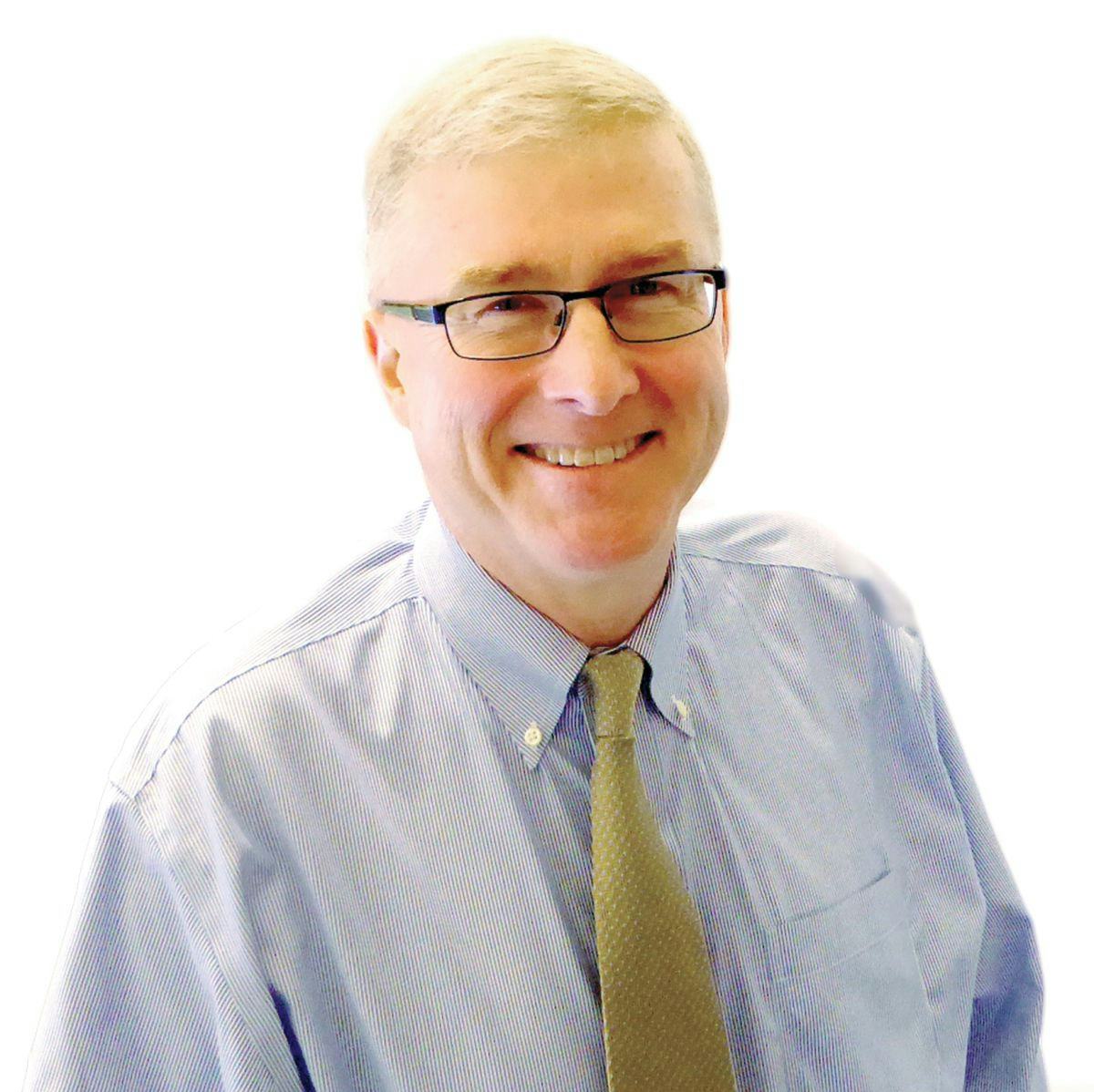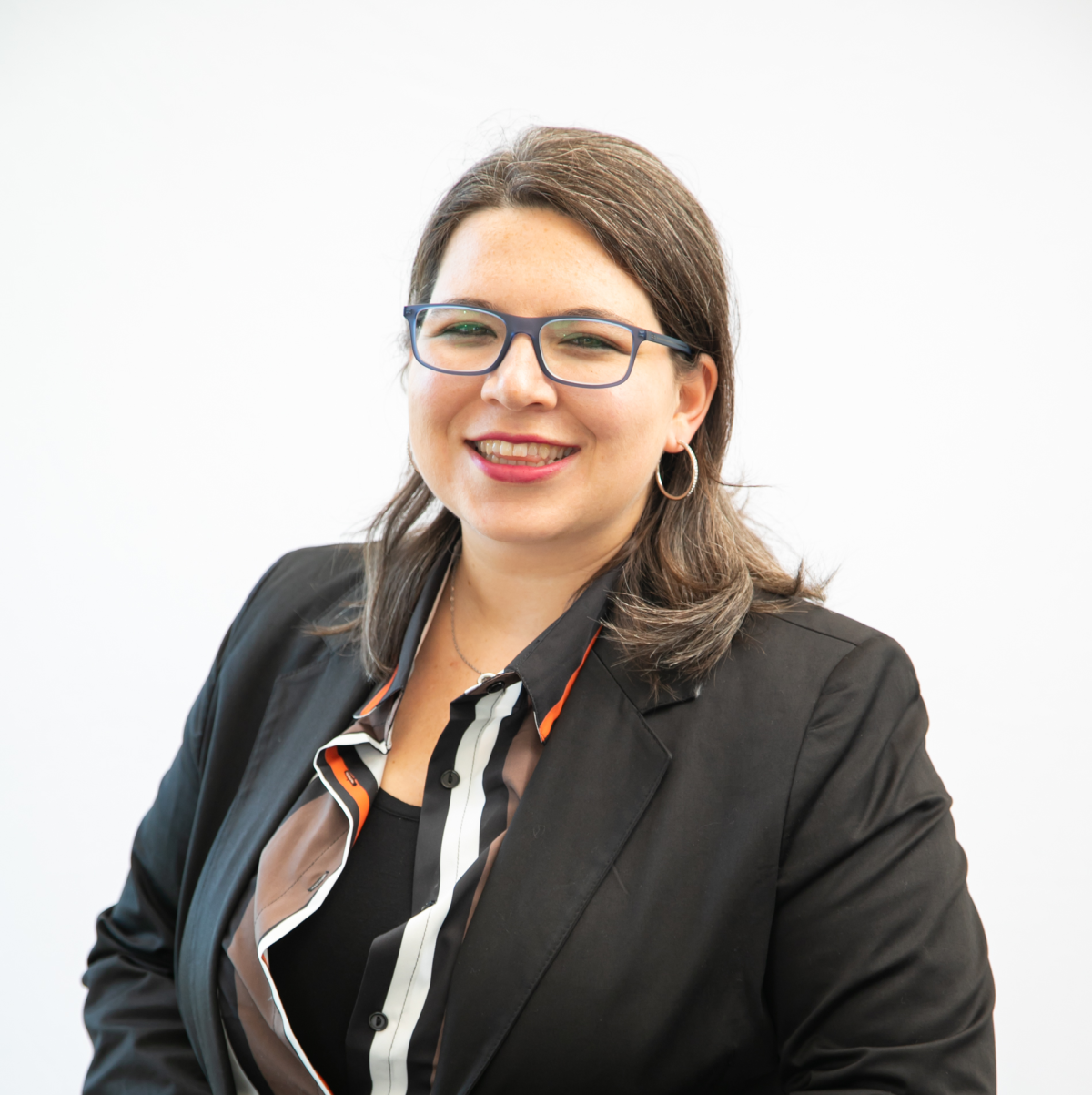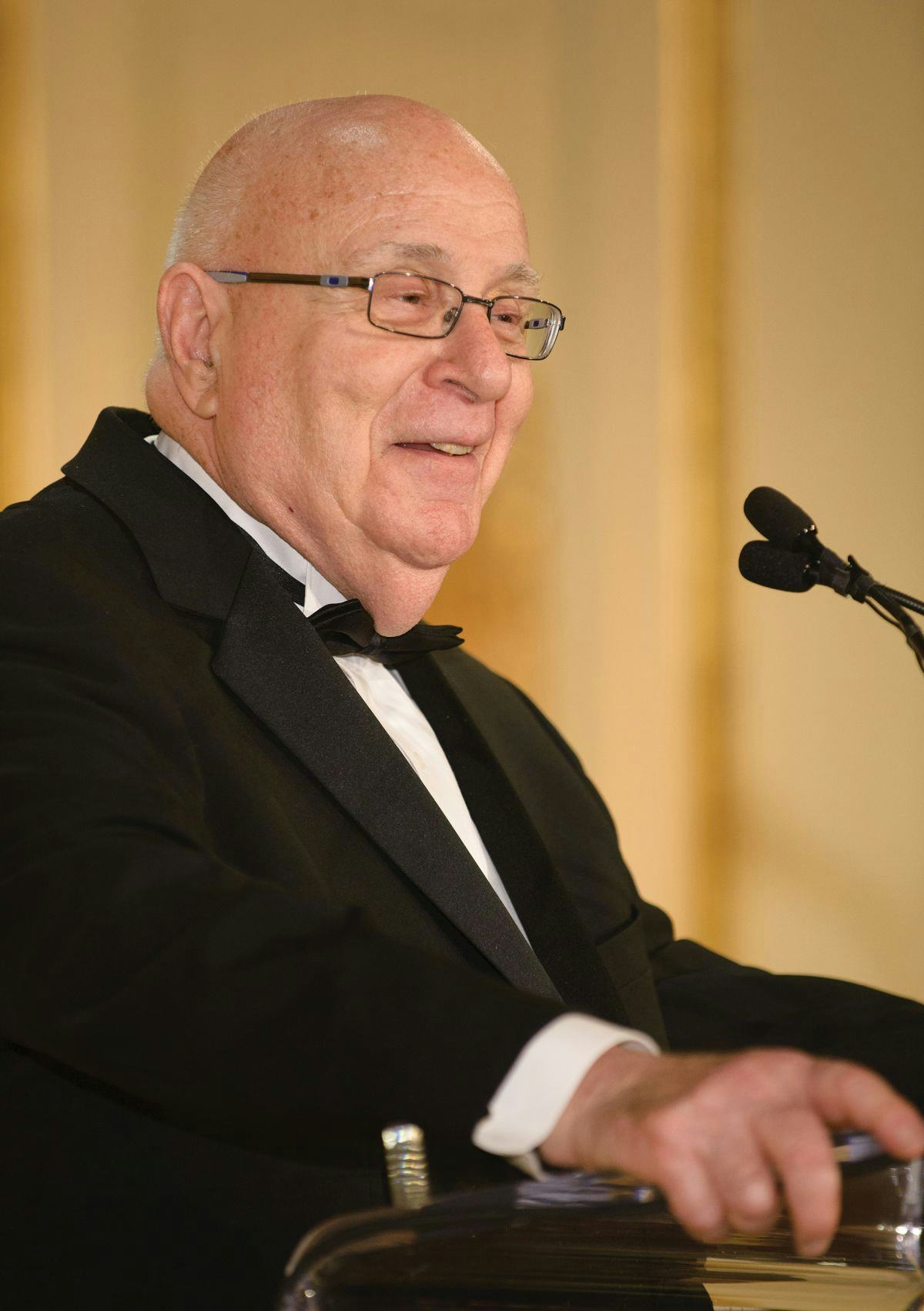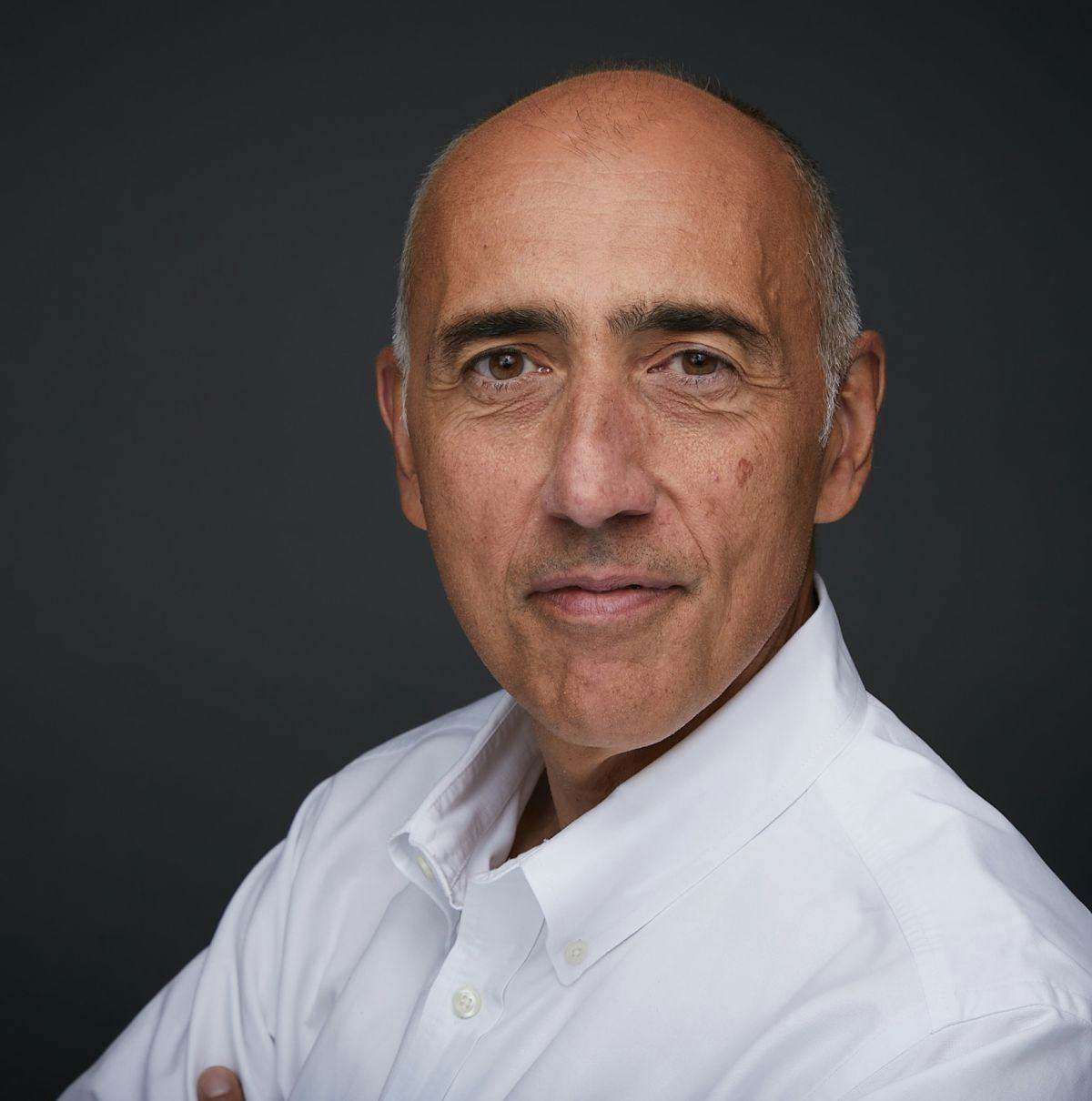On Point: Alumni Answer the Call
A Mentor, Sponsor and Steadfast Supporter
Bernie McNeilly ’85 M.S. ’89
Bernie McNeilly ’85 M.S. ’89 has always pursued challenges. With more than 30 years of industry experience as president of the Northeast Region of WSP USA, Inc. — one of the world’s leading engineering and professional services firms — some of his most noteworthy and iconic projects include program management of the reconstruction of the World Trade Center and, more recently, of the Moynihan Station Train Hall in New York City.
Just as he has pursued his career with passion, McNeilly made the most of his education at Stevens, where he played on the basketball team, served as president of the student council, edited the sports section of The Link yearbook, organized mixers and band performances and even DJ’ed dances.
Today, he is still giving back to Stevens.
“Bernie has given time, jobs, financial resources, advice and guest lectures to our university and students over the last 20 years,” says Leslie Brunell ’86 M.Eng. ’90 Ph.D. ’96, teaching professor in the Department of Civil, Environmental and Ocean Engineering (CEOE).
McNeilly and Brunell were undergraduates at Stevens when they met, and they have remained friends ever since. In 1999, when Brunell took on leadership of the civil engineering senior design course, she wanted to expose students to real-world engineering designs with real-life codes, standards and limitations.
“I called Bernie,” she says. “He felt my idea was worthwhile and offered to mentor a design team.” McNeilly has mentored teams ever since, guiding two teams this past school year, his 22nd year as a mentor and sponsor.
“In mentoring, I help students determine what they’re interested in as far as career development,” he says. “Some are very focused, while some are still trying to explore and find their way.
“I’m looking for individuals who are inquisitive, team-oriented and willing to figure out things and learn as they go. I think those types of traits exist in a lot of Stevens students. I want to help Stevens students get to where they want to be.”
In addition to supporting senior design, McNeilly and his team regularly hire graduates and provide summer internships. Throughout the COVID-19 pandemic, many students have had difficulty finding co-op positions, so McNeilly has made a special effort to find placements for them within WSP USA. Each year, McNeilly also takes the time to give a presentation to the CEOE community at Stevens about his career.
“He is truly an exceptional ambassador for Stevens,” Brunell says. McNeilly has also been a faithful donor, supporting students just as others helped him during his time at Castle Point.
“I did not realize while an undergraduate how fortunate I was to attend Stevens with some aid,” McNeilly says. “Stevens challenged me to be better, and it was worth it! Over time, it has become more apparent how fortunate I was, and I want to give back so that others can have a chance to contribute as well.
“The ACES program (Accessing Careers in Engineering & Science) is a way to do this and is beginning to blossom as a program, to support those in need or less fortunate to do well.” ACES supports talented students with a financial need, many from underserved communities, and inspires them to pursue STEM careers. “Continuing this initiative is important,” McNeilly says.
McNeilly credits his Stevens education for providing a broad-based education that launched his remarkable career.
“At Stevens I learned that you need to have a good, strong work ethic, to never give up, and to be resilient,” he says.
— Kyla Buckingham
For more information on how to volunteer with and support the School of Engineering and Science, email Sarah Wells at [email protected]
A Conversation with Dr. Gabriela Gongora-Svartzman Ph.D. ’20
Gabriela Gongora-Svartzman Ph.D. ’20 is a proud graduate of Stevens’ School of Systems and Enterprises (SSE) — and one of its most illustrious alumnae.
She credits her academic experience, her professors and her numerous extracurricular activities at Stevens with helping propel her to her current position: assistant teaching professor of information systems with Carnegie Mellon University’s Heinz College of Information Systems and Public Policy. Her research is focused on bridging the quality of experience and quality of services in smart cities.
As she builds her career as a young professor and researcher, Dr. Gongora-Svartzman has already started giving back to Stevens — through career advice for former students to ongoing and future research collaborations with SSE students and professors. The award-winning teacher recently reflected on her Stevens experience and ways to give back.
What aspects of your academic experience at SSE have been the most memorable?
My Ph.D. adviser — SSE Associate Professor Jose Ramirez-Marquez — was instrumental in my development throughout the Ph.D. program. I am forever thankful for all his support and teaching throughout my years at Stevens, and now our continued collaboration in my new role with Carnegie Mellon University (CMU). Many of my classes shaped my research and opened my eyes to new ideas, especially Simulation and Modeling, taught by Assistant Professor Paul Grogan. I also learned a lot from the compassion, understanding and mentorship techniques of Teaching Professor Gregg Vesonder, who I worked with on summer research programs with international students. Beyond academics, I definitely have fun memories, too. Graduate women events, the Christmas tree lighting and other campus-wide activities helped with the pressure of my Ph.D. program. I have a special fond memory of participating in SSE potlucks. At a time when we all needed to come together as a community, what better way to do it than with food?
At Stevens, you served as a teaching assistant and received the Award for Exemplary Teaching in a Recitation Section. Did you find teaching rewarding?
I definitely did! I started my Ph.D. thinking I would use my degree and skills to go back to industry and work on solving interesting problems. Instead, I ended up enjoying academia substantially more. I grew fond of finding ways to explain concepts and applications to students, finding joy in those “aha” moments when they finally get a complex problem or solve a programming bug, and guiding them through diverse projects.
What role did you play in the Women@SSE program?
The initial meetings were a safe space to talk about different problems women in SSE were facing and what types of talks and support would be beneficial to all of us. I attended events, participated in meetings and was a speaker at an initial meeting. I spoke about my experience as a scholar at the Grace Hopper Celebration (GHC), a series of conferences designed to bring the research and career interests of women in computing to the forefront. I’m hoping to inspire other women to join GHC in the upcoming years.
Can you discuss your current relationship with SSE?
As a former SSE teaching assistant and former adjunct business professor at the School of Business at Stevens, I keep in touch with Stevens students to provide career advice. I still have ongoing research projects, publications and grant proposals with SSE professors. I hope to keep these relationships in the years to come and continue fostering collaboration and the exchange of ideas, including between students from SSE and CMU.
— Hunter DeSimone
Supporting inquiry into the Internet’s origins and ethics
David Farber ’56 M.S. ’61 Hon. D.Eng. ’99
To call the career of David Farber ’56 M.S. ’61 Hon. D.Eng. ’99 storied is an understatement. Known as “the Grandfather of the Internet,” the computer scientist’s early work in informational technology led to the world’s first operational, distributed computer system.
Farber then bounced between tech’s epicenters to help invent the field’s latest advancements but, in time, his focus shifted away from conceiving breakthroughs to considering the ethics of what had already been made.
“I had gotten interested in many of these issues of freedom and the impact of cyber,” Farber says, “because it was clear that what we were building was perfectly capable of making 1984 look like amateur day.”
In short order, Farber — who has had an extraordinary career in academia, with the University of Pennsylvania, the University of California at Irvine and Carnegie Mellon, and in industry, with Bell Labs and the Rand Corporation — collaborated with fellow pioneers to defend rights, liberties and privacy within cyberspace.
Now, with his support for Stevens, Farber, trustee emeritus of the Stevens Board of Trustees and the 2014 recipient of the prestigious Stevens Honor Award, encourages both students and faculty members to build moral considerations into their academic research.
“I think this happens often in technology, that as your career advances,” says Farber, “you start looking back and saying, ‘What have I done?’”
In the College of Arts and Letters (CAL), Stevens’ home for the arts, humanities and social sciences, the David and GG Farber Faculty Fellowship supports professors who raise public awareness about the social impacts of scientific and technological development. The fellowship was established by Farber and his late wife, Gloria (GG). Its latest recipient was Bradley Fidler, who researches the management and architectural evolution of networked systems and recently entered the private sector after being an assistant professor in science and technology studies at CAL. The first recipient of the fellowship was Alex Wellerstein, a nuclear historian and currently a CAL associate professor.
For Farber, the creation of this worldwide communications systems can be cautiously compared to the development of nuclear weapons, as both advancements unleashed unintended consequences.
“When we created the Internet, it was a research experiment, and we didn’t pay attention to a number of things, because we were trying to make it work,” explains Farber. “Security and privacy were not issues we paid much attention to. It was outside the research objectives.”
“It’s a wonderful world, but it’s a dangerous world,” he says. “We’d like to understand how to make it less dangerous.” This pursuit has most recently taken Farber to Japan, where he serves as distinguished professor and co-director of the Cyber Civilization Research Center at Keio University in Tokyo.
Each year, Farber encourages students in both Tokyo and Hoboken to participate in his writing contest, which promotes the consideration of civil liberties. Awarded as the Joseph M. Farber Memorial Prize at Stevens, established in memory of Farber’s late son, Joseph, the accolade recognizes a CAL graduate who displays a keen interest in preserving human rights.
With this support, Farber hopes Stevens students enter their professions with an appreciation of how their decisions can impact the world.
“It’s important — especially in the sciences — to have a meaningful discussion of the ethics of your field,” Farber says.
— Connor Durkin
To learn more about ways to volunteer with and support the College of Arts and Letters at Stevens, email Connor Durkin at [email protected]
Many Hats, One Alma Mater
Christopher Frank ’89 M.S. ’93
Christopher Frank ’89 M.S. ’93, vice president of AmexInsights at American Express, attributes his expertise, leadership skills and much of his professional success to his Stevens education and connections. And he’s gone above and beyond to give back to his alma mater.
As chair of the dean’s advisory board for the School of Business at Stevens, giving valuable, real-world advice comes naturally to Frank, whether it’s to the board or to students and young alumni embarking on their careers.
Frank has made a career out of sifting through our overexposed, data-driven world to deliver insights. He sees himself as a translator, converting raw data into actionable recommendations, and cites Stevens’ technology management program as the catalyst for developing those skills.
“Stevens has taught me the skills of how to think critically, how to analyze problems efficiently and to deliver creative solutions that have sustained impact,” he says.
Taking on the challenge of data deluge, in 2011, Frank co-authored a book on managing information overload, Drinking from the Fire Hose, with his Stevens contemporary Paul Magnone ’88 M.S. ’93. For recent graduates, especially with the rise of remote work, searching for their first jobs can feel like “drinking from a fire hose.” To these future leaders, Frank advises, “Don’t find the perfect job. Find someone you want to work with. You could have the ideal role on paper and not have someone who motivates you or a leader who is willing to coach, support and inspire you.”
In his own professional life, Frank has found people he wants to work with by tapping into the Stevens network. Before publishing his book with Magnone, Frank founded a startup — one of the first online job matching platforms — with two other Stevens alumni, Gerry Crispin ’69 M.S. ’72 and Jim Suzansky ‘62 M.S. ’74 Ph.D. ’74.
Frank’s career aspirations did not include becoming an author or entrepreneur, but he always made it a point to explore the opportunities that came his way. This included relocating to the West Coast, where he had a distinguished 10-year career at Microsoft, helping to grow a global research team from 8 to 103 people.
“Be open to possibilities,” he says. “When something unexpected presents itself, don’t discount it.”
Frank became an entrepreneur, author and, most recently, an adjunct professor at Columbia Business School by remaining “open, curious and inquisitive.” Frank credits Stevens for making these things possible.
“It’s important to me to give back to Stevens in recognition in all that I’ve received,” says Frank, who formerly served as a young alumni trustee. Frank gives his time, money and talents to his alma mater, yet he says he’s still the one who benefits most.
These days, he brings his expertise and decades of experience to the School of Business' dean’s advisory board, whose mission is to elevate the school’s quality and impact by providing recommendations for creating differentiated programs and growing corporate support. The board also offers many opportunities to students through mentorship, to help them secure internships, co-op positions and full-time jobs.
A notable board accomplishment under Frank’s leadership is the 100% Advisory Board Challenge. The board recognized that students and faculty give 100% every day. To honor this commitment, 100% of the board members made multi-year gifts to Stevens to support the school’s academic and research activities.
Frank strongly encourages students and fellow alumni to embrace the proud Stevens network.
“The Stevens alumni network is extraordinary. Those connections will last a lifetime,” he says. “You never know who you can help or who might be able to help you. If someone from Stevens calls, even if you don’t know them, take the call.”
— Garrett Kincaid
To support the School of Business as a volunteer, please contact Sara Victa at [email protected]




